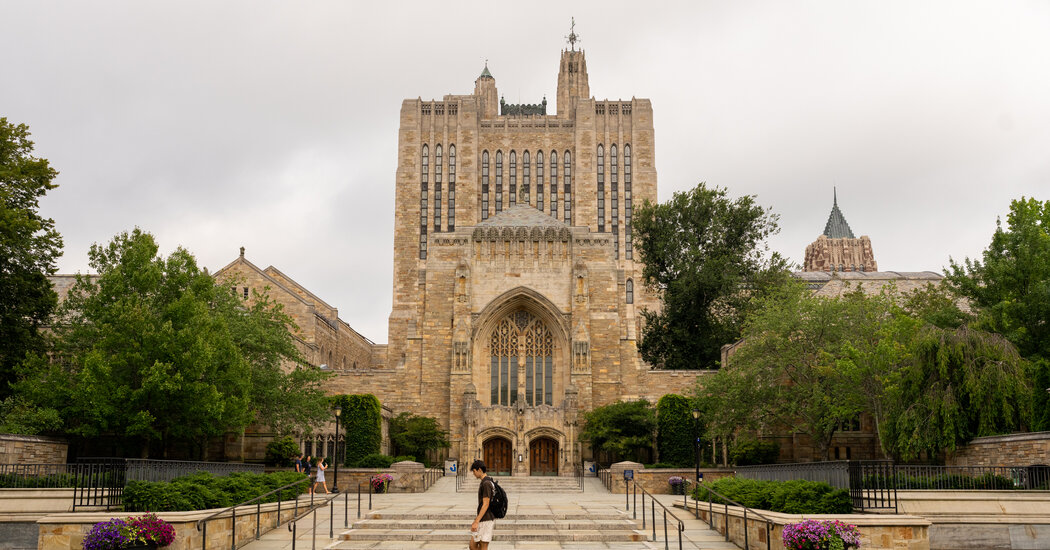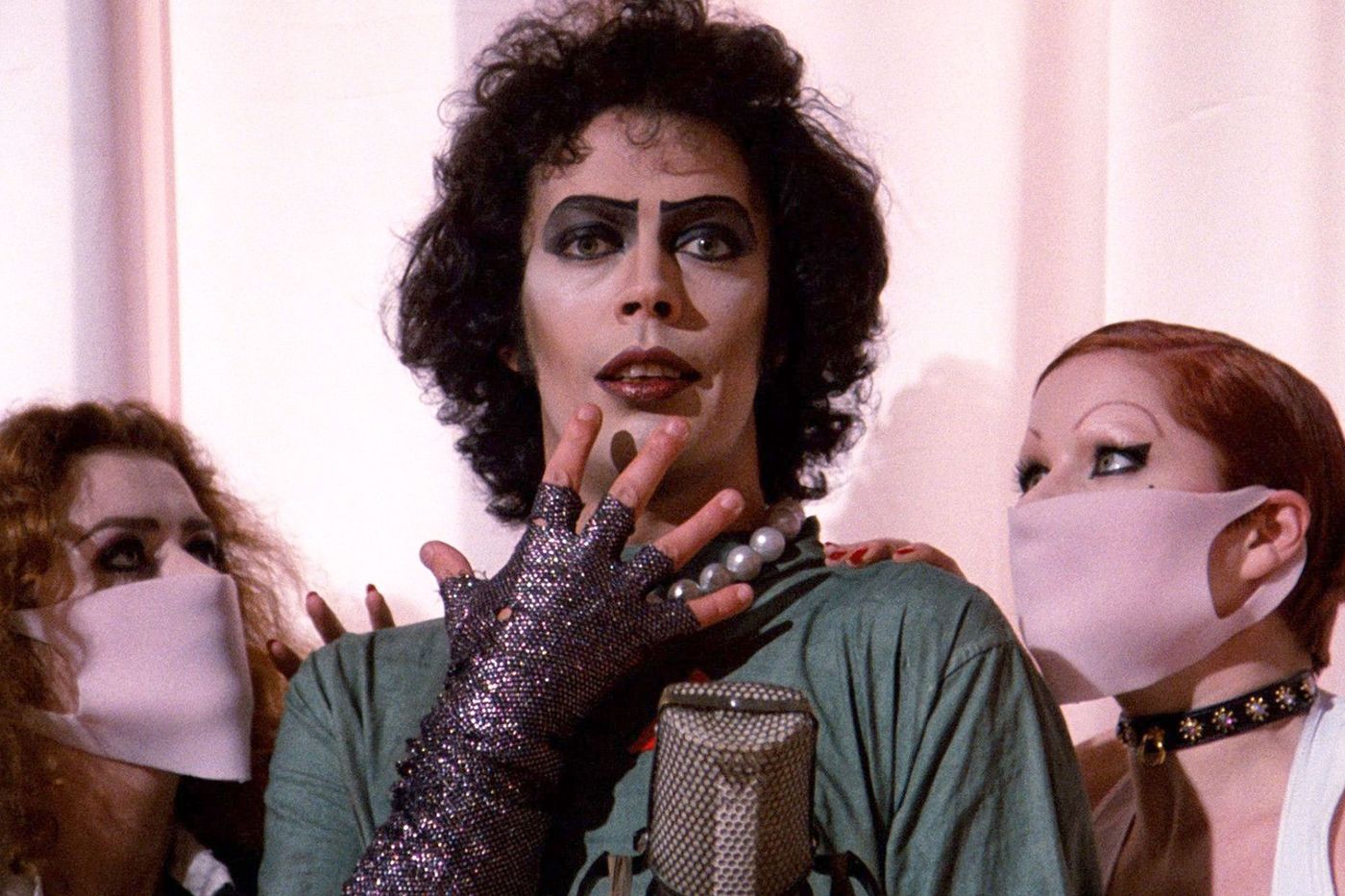In a 2018 disciplinary hearing at Yale University, Saifullah Khan listened as a woman accused him of raping her after a Halloween party.
The woman, who had graduated, gave a statement by teleconference to a university panel, but Mr. Khan and his lawyer were not allowed in the room with the panel. Nor could his lawyer, under the rules of the hearing, cross-examine her.
Instead, they were cloistered in a separate room, as her testimony piped in by speakerphone. He felt, he said, “there is absolutely nothing I can do to change my situation.” As he feared, Yale expelled him.
Mr. Khan’s criminal trial, months earlier, was markedly different. His lawyer cross-examined the woman in ways that horrified women’s rights advocates: How were you dressed? How much did you drink? Did you send flirty texts? And unlike the Yale hearing, the prosecutors had to prove his guilt “beyond a reasonable doubt.”
After barely three hours of deliberations, Mr. Khan was acquitted.
The difference between those two hearings — in process and outcome — led Mr. Khan to make an unusual move: He sued his accuser for defamation for statements she had made during the Yale hearing. That lawsuit, filed in 2019, is challenging the way universities across the country have adjudicated such sexual assault hearings.
Normally, such a lawsuit would not have much of a chance. In Connecticut and other states, witnesses in such “quasi-judicial” hearings carry absolute immunity against defamation lawsuits.
But the Connecticut Supreme Court in June gave Mr. Khan’s suit the greenlight to proceed. It ruled that the Yale hearing was not quasi-judicial because it lacked due process, including the ability to cross-examine witnesses.
“For absolute immunity to apply under Connecticut law,” the justices wrote, “fundamental fairness requires meaningful cross-examination in proceedings like the one at issue.”
Mr. Khan’s lawyer, the court said, was effectively reduced to the role of a “potted plant.”
The decision applies only to cases within the state, but it is reverberating at universities across the country. College officials consulted their own state laws, checking whether their disciplinary hearings could leave witnesses vulnerable to defamation lawsuits.
And the decision complicated an already electrified debate over how colleges handle allegations of sexual assault on campus — in a way that is fair to both parties.
Title IX, the federal education law, governs how universities should handle sexual assault hearings. The Khan hearing was governed by Obama-era guidance, which discouraged cross-examination. In 2020, the Trump administration reversed those guidelines and mandated the practice.
Universities are expecting that the Biden administration will broadly overhaul Title IX again. In the case of campus sexual assault hearings, it is expected to hew closer to Obama-era guidance and make hearings — and therefore direct cross-examination — optional.
The Education Department said a Title IX review is currently in process. But the threat of defamation lawsuits like Mr. Khan’s could mute the impact of the Biden administration’s expected change.
Women’s rights advocates say that some students who file sexual abuse claims under Title IX could face a difficult choice. They could choose to forgo being cross-examined but open themselves up to defamation lawsuits. Or they could protect themselves from such lawsuits, but have to submit to an interrogation during these campus proceedings.
“It’s highly possible that many survivors are going to say, ‘Well, maybe I won’t report at all if these are my two choices,’” said Elizabeth Tang, a lawyer with the National Women’s Law Center, which co-signed an amicus brief in the Connecticut case. “I think that’s really damaging and will result in a chilling effect on survivors.”
But to Mr. Khan and his supporters, the court decision underlines their belief that colleges are ill-equipped to adjudicate something as fraught as a rape accusation.
“It is fundamentally unfair to take a person accused and put him in a situation where the accuser is believed and pandered to and the person’s right to defend himself is minimized,” Norman Pattis, a lawyer for Mr. Khan, said in an interview. “That’s just not American.”
Two Hearings, Two Outcomes
According to a police affidavit, the woman, then 21, was separated from friends after an off-campus Halloween party in 2015. She said that she was drunk for the first time, and Mr. Khan, an acquaintance, sat with her that night as she repeatedly got sick.
The woman said she woke in the middle of the night to find Mr. Khan on top of her. She tried to push him off, she said, and in the morning, found herself naked, even though she remembered lying down fully clothed. She had bruising on her legs and saw used condoms on the floor, she said.
“What you did to me last night was wrong,” she told Mr. Khan, according to an affidavit. “You should leave.”
During the criminal trial, his lawyers challenged that account, saying that the sex was consensual, and that he had been invited into her room.
In the cross-examination, they asked questions such as: Why did her memory blank on certain details, but not others, like the assault itself? Why did she send Mr. Khan what they called flirty text messages before the alleged assault? And why did she wear a black cat costume for Halloween instead of a more modest one, such as “Cinderella in a long flowing gown”?
The woman, who has been called Jane Doe in the defamation case, did not respond to a request for an interview. But to women’s rights advocates, that cross-examination proves their point: The practice is used to intimidate and retraumatize victims.
They also say that the hearings already have plenty of due-process rights, including the ability to respond to the investigator’s report and submit written questions to the hearing panel.
Allowing cross-examinations further deters sexual assault victims from reporting, said Ms. Tang of the National Women’s Law Center.
“The vast majority of victims are not reporting what’s happening to them,” she said. “It’s still really hard to come forward and talk about what happened because survivors know about the retaliation they’re going to face, not just from their abusers but from the larger community.”
The Connecticut Supreme Court’s decision did not address the merits of Mr. Khan’s defamation case. The court was sympathetic to the argument that protection from defamation lawsuits helps victims speak candidly with administrators.
Ultimately, however, the court found that the Yale hearing had procedural shortcomings, including the lack of cross-examination, not placing witnesses under oath and not giving a transcript of the proceeding to Mr. Khan.
Andrew Miltenberg, a lawyer who usually represents the accused, said that cross-examination during Title IX hearings is necessary for fairness, because the proceedings are already tilted against the accused. Campus investigators are not always trained in evidentiary procedure. And there is a lower standard of guilt than in criminal proceedings. In the Khan hearing, the bar was set at a “preponderance of evidence” rather than “beyond a reasonable doubt.”
Although the accused may submit written questions, that is insufficient, Mr. Miltenberg said, because they are vetted by a hearing committee and are sometimes reworked or not even asked.
But Joseph Vincent, an advisory board member of the Association of Title IX Administrators, expressed skepticism about the value of adversarial cross-examinations in campus sexual assault hearings.
He said they are meant to test the credibility and demeanor of the accuser under pressure, but they are basically worthless at getting to the truth. The practice rewards those who can hire the “flashiest attack dog attorney money can buy,” he said. Defamation Lawsuits: A Strategic Move
The Trump administration rules, which currently govern these hearings, require cross-examinations and other procedural safeguards. This would have protected Mr. Khan’s accuser from the defamation lawsuit.
Naomi Shatz, a lawyer who has represented accusers and accused in other hearings, has noticed an uptick in such suits, but they are uncommon, she said. The accused usually wants to move on, especially if the case is not public. (Mr. Khan’s case had received significant news media coverage, including in The Times, before he filed his lawsuit.)
“It’s a huge emotional and financial burden to be dragged into a defamation lawsuit,” she said, citing the successful lawsuit by the actor Johnny Depp against his former wife, Amber Heard. “Nobody wants to be in Amber Heard’s position, especially as a young college student without financial resources or social capital.”
For his part, Mr. Khan, who is originally from Afghanistan, said that he was pleased with the Connecticut Supreme Court’s decision. But he said that he doesn’t believe a cross-examination would have changed the outcome of his hearing. There was too much intense public pressure, he said, at the height of the #MeToo movement.
Mr. Khan, a neuroscience student while at Yale, never earned a bachelor’s degree. He is suing the university as well, for breach of contract and infliction of emotional distress, among other claims. He is seeking $110 million in damages and the opportunity to finish his degree. “Yale took away my 20s,” he said.
But his larger mission is to abolish campus Title IX hearings, he said, and he is traveling the country, conferring and strategizing with other students accused of sexual assaults. If he wins the defamation suit against his former classmate, he said that he will disseminate her name and facts about the case online. His name will always be connected to this case, and hers should too, he said.
But Mr. Khan’s defamation lawsuit, now due back at the U.S. District Court in Connecticut, is far from a slam dunk, said legal experts.
“It’s not that Khan will win,” said Mr. Vincent of the Association of Title IX Administrators. “It’s that Khan can run up the bills and run out the clock such that it’s no longer feasible to defend oneself.”
Those filing complaints, he added, may have to make “a cost-benefit decision, way at the beginning, about whether or not they are prepared and able to endure what will possibly come.”
Why are educational institutions even holding these hearings? Sexual assault/rape is a crime and should be handled by the police/courts. The schools should just come in after the fact and make decisions based on the verdict.
I’m not claiming this is right or wrong. But here’s the justification.
The criminal justice system is there to prove beyond reasonable doubt that a crime occurred. When it comes to distinguishing consensual sex from rape, it’s nearly impossible to prove beyond reasonable doubt, because it ends up being just she said, he said. One tactic is to show a pattern of multiple victims. So if multiple victims independently come forward with a similar story of sexually predatory behavior, then you have compelling evidence that might be enough for “beyond reasonable doubt”.
What this means is that, in principle, rapists can just start raping left and right and keep getting away with it. At least for a while. I don’t claim here anything about how frequent or rare these rapists may be.
This can make life untenable for rape victims on university campus, in that they will not be able to keep going to class in the same room as the person that raped them. This creates even more injustice beyond just that of being victim of a crime that you can’t prove, because they’ll be forced to forego their studies.
So that’s the justification given for why, morally, we need something that’s a bit easier than “prove beyond reasonable doubt” that will make it possible for the victim to continue their studies. Legally, Title IX, along with a lot of acrobatics, provides the legal framework to force universities to do something about it.
In practice, it seems that at least in some universities you end up with a complete joke of a system. Universities are completely ill equipped to adjudicate such a complex situations. The whole thing is extremely politicized. The outcome of the investigation seems to be heavily based on the gender of the accuser and accused as well as political connections to the people involved in the process.
Regardless of if the previous is true or not. Not being allowed to cross-examine the accuser in a she-said he-said situation seems completely insane.
Personally, I think one party consent for legal recordings (recordings that can only be used for legal purposes in criminal proceedings) should become the norm world-wide. Then catching these rapists is going to be so easy that there won’t be any need to even think about these kinds of kangaroo courts.
Title 9 is shit for this. As long as the accused is named, but the accuser is not, there will be no fairness in the system.
Legal minefield . What a mess.
It seems like the exception carved out for quasi legal processes must include some form of due process which isn’t present if you are unable to confront your accusers.
It’s shitty that this protects a lot of really heinous crime. It’s really shitty that no one’s come up with a better solution than having due process for everybody. The solution is not to carve out exceptions for people accused of crimes that someone might think doesn’t deserve to defend themselves.
deleted by creator
Yeah, seems like a Saul Goodman type for sure, but at the end of the day it seems like he does have a point. If you’re being accused of something, you should be given the chance to respond to it.
What does a lawyer’s reputation have to do with the client? If I need a lawyer, I’m choosing based on affordability and perceived ability, not their politics.
I’m not well connected to law culture to know for sure. But it does seem like there is a fair amount of politics involved as well as guilt related.
If you’re a man accused of raping a woman, whether you’re guilty or not. You’re not going to pick a lawyer with a track record of ending her tweets with hashtag KAM.
If you’ve looked at the Johny Depp trial. Even expert witnesses will differ along an ideological divide (typically gender oriented ideological divide).
So if you’re representing a man, you’ll want to use one set of expert witnesses. Whereas a if you’re representing a woman you’ll want to use a completely different set of expert witnesses. It might stand to reason that a lawyer will just pick one side of the ideological aisle and become an expert at it (and likely acquire the corresponding professional deformation and echo chamber ideology of that particular side of the ideological debate).
So there’s plenty of reason to pick a lawyer based on their ideological association in this kind of case. Regardless of your own level of guilt.
But at the same time, maybe there are lawyers who specialize in defending guilty people whereas others specialize in defending innocent people.
I wouldn’t read to much into the choice of lawyers, but it can certainly be a red-ish flag.
deleted by creator
You… DON’T see a problem with prejudging a trial based on who the lawyers are?
deleted by creator
Congratulations, you’ve just proved you don’t understand the basics of the justice system, which is that EVERYBODY IS ENTITLED TO A DEFENSE, WITHOUT PREJUDICE
deleted by creator
This sounds very familiar, didn’t Louis Theroux do a documentary on him also? Felt very, very slippery.
According to a police affidavit, the woman, then 21, was separated from friends after an off-campus Halloween party in 2015. She said that she was drunk for the first time, and Mr. Khan, an acquaintance, sat with her that night as she repeatedly got sick.
The woman said she woke in the middle of the night to find Mr. Khan on top of her. She tried to push him off, she said, and in the morning, found herself naked, even though she remembered lying down fully clothed. She had bruising on her legs and saw used condoms on the floor, she said.
“What you did to me last night was wrong,” she told Mr. Khan, according to an affidavit. “You should leave.”
During the criminal trial, his lawyers challenged that account, saying that the sex was consensual, and that he had been invited into her room.
In the cross-examination, they asked questions such as: Why did her memory blank on certain details, but not others, like the assault itself? Why did she send Mr. Khan what they called flirty text messages before the alleged assault? And why did she wear a black cat costume for Halloween instead of a more modest one, such as “Cinderella in a long flowing gown”?
Well that’s absolutely infuriating.
On which side? Because there’s a ton of things that are infuriating about the whole system. It’s entirely too open to abuse BY BOTH SIDES.
Yale accreditation 👈 👉 Losing it all for being a sex pest
😰
among everything else… friends used to look out for each other, where the hell were they. And I mean that for both sides. Everyone should have a sober friend who is going to make sure you get home safely and without being accused of rape before they start drinking. These two should never have been alone.








